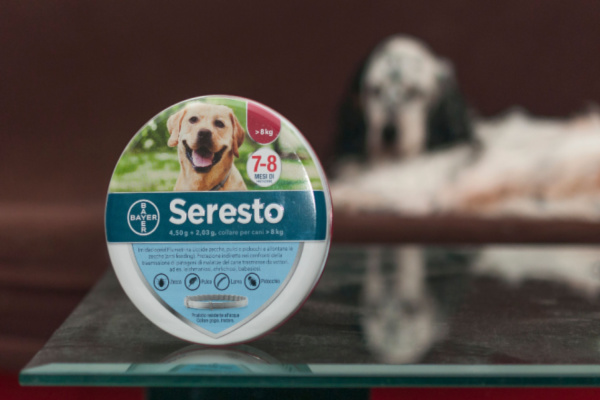According to CBS News, almost 34 million of the collars have been sold to American pet owners, who have been attracted by the product’s pledge to ward off ticks and fleas for up to eight months, compared with other treatments that must be applied monthly. But the collar, made by Elanco Animal Health, is linked to a higher number of death and injury reports than competing products, claims the report from the Committee on Oversight and Reform’s subcommittee on economic and consumer policy.
The report may prompt some pet owners to question if they want to buy or continue using the product, part of the $232 billion pet-care industry. During the pandemic, more Americans adopted pets, while spending on pet-related items have surged during the health crisis, according to Grand View Research. The subcommittee’s report highlighted the number of reports of injury or death that owners linked to the collar, as well as Canada’s decision to bar sales of the Seresto collar because its review of U.S. incidents and toxicology studies found it “posed too great a risk to pets and their owners to be sold in Canada.”
During a hearing before the committee on Wednesday, Elanco Animal Health CEO Jeffrey Simmons said the collar is safe and had been approved by the Environmental Protection Agency, undergoing more than 80 safety, toxicity and efficacy studies. “Adverse event reports aren’t proof of causation,” Simmons said in the hearing. “We haven’t found a single death due to the ingredients in the collar.”
In 2021, there were just over 17 incident reports for every 10,000 collars sold, with most of those issues involving irritation or redness, according to Elanco. In a statement to CBS MoneyWatch, the company said an analysis of all such reports between 2013 and 2021 shows “no established link between the active ingredients in Seresto and pet death.” Added Elanco: “Given the robust scientific evidence for Seresto’s strong safety profile, we are proud to stand behind the product as an important tool to protect pets from fleas and ticks and the damaging diseases they carry.”
The report cited findings from Canada’s Pest Management Regulatory Agency (PMRA), which Rep. Raja Krishnamoorthi, a Democrat from Illinois and the chairman of the committee, said is akin to the EPA in the U.S. The PMRA’s analysis of symptoms experienced by hundreds of pets included skin lesions and irritated skin, which sometimes covered large areas of a pet’s body and didn’t resolve after the collar was removed, the report said. Other symptoms include lethargy, abnormal behavior, excessive grooming and vocalization, vomiting, diarrhea and anorexia, according to the panel.
“These troubling symptoms appeared shortly after use of the Seresto collar began, mostly within the first month,” according to the report. “Many pet owners reacted by removing their pets’ collars early,” it said. Some pet owners also reportedly experienced side effects, the report added. These included skin and immune disorders, as well as respiratory, neurological and digestive impacts such as throat irritation, dizziness and nausea, it said.
The report included several recommendations, including a voluntary recall of the collars by Elanco. It also suggested that the EPA revamp its review process for products with pesticides.
—
Photo Credit: Cristian Storto / Shutterstock.com
